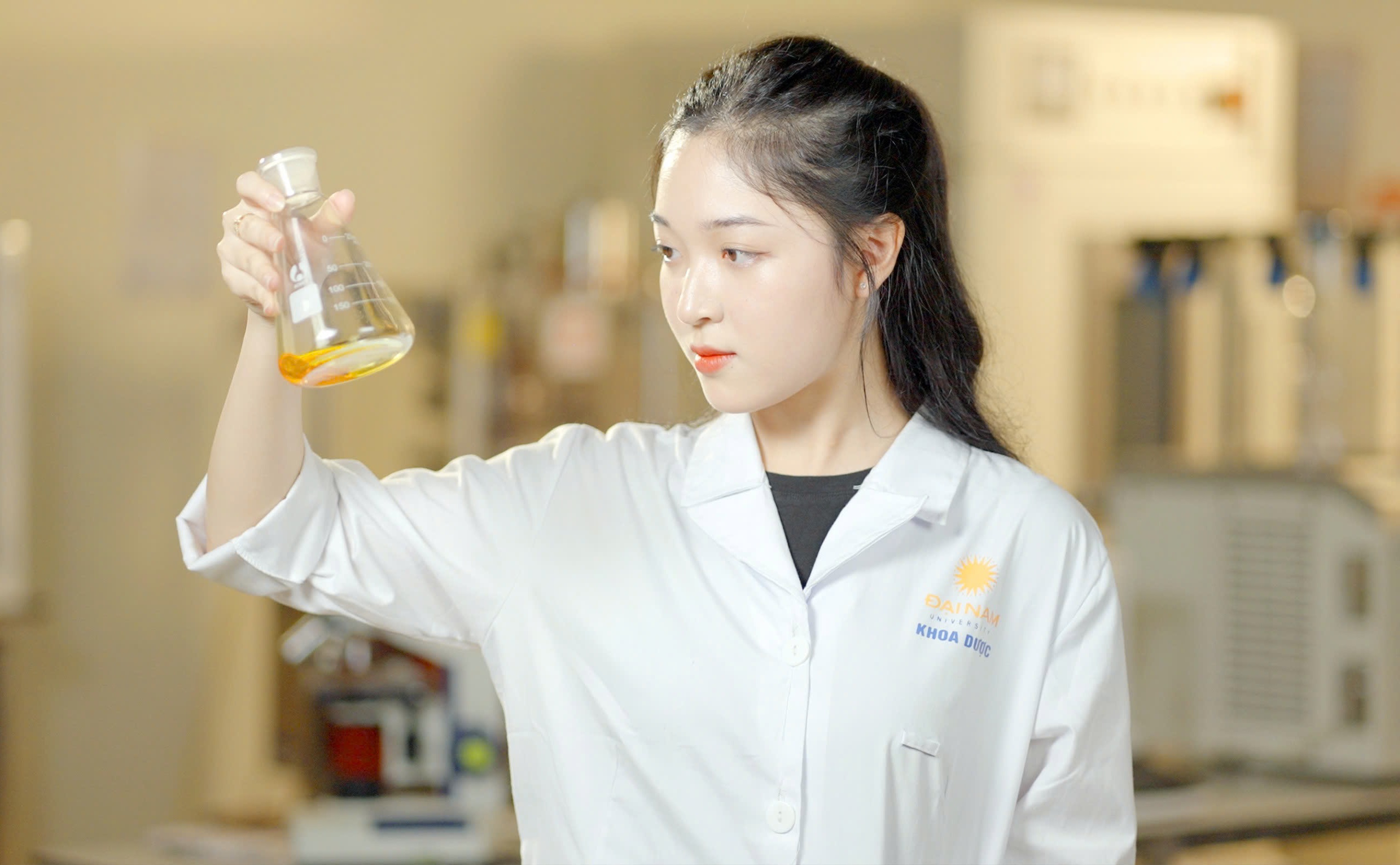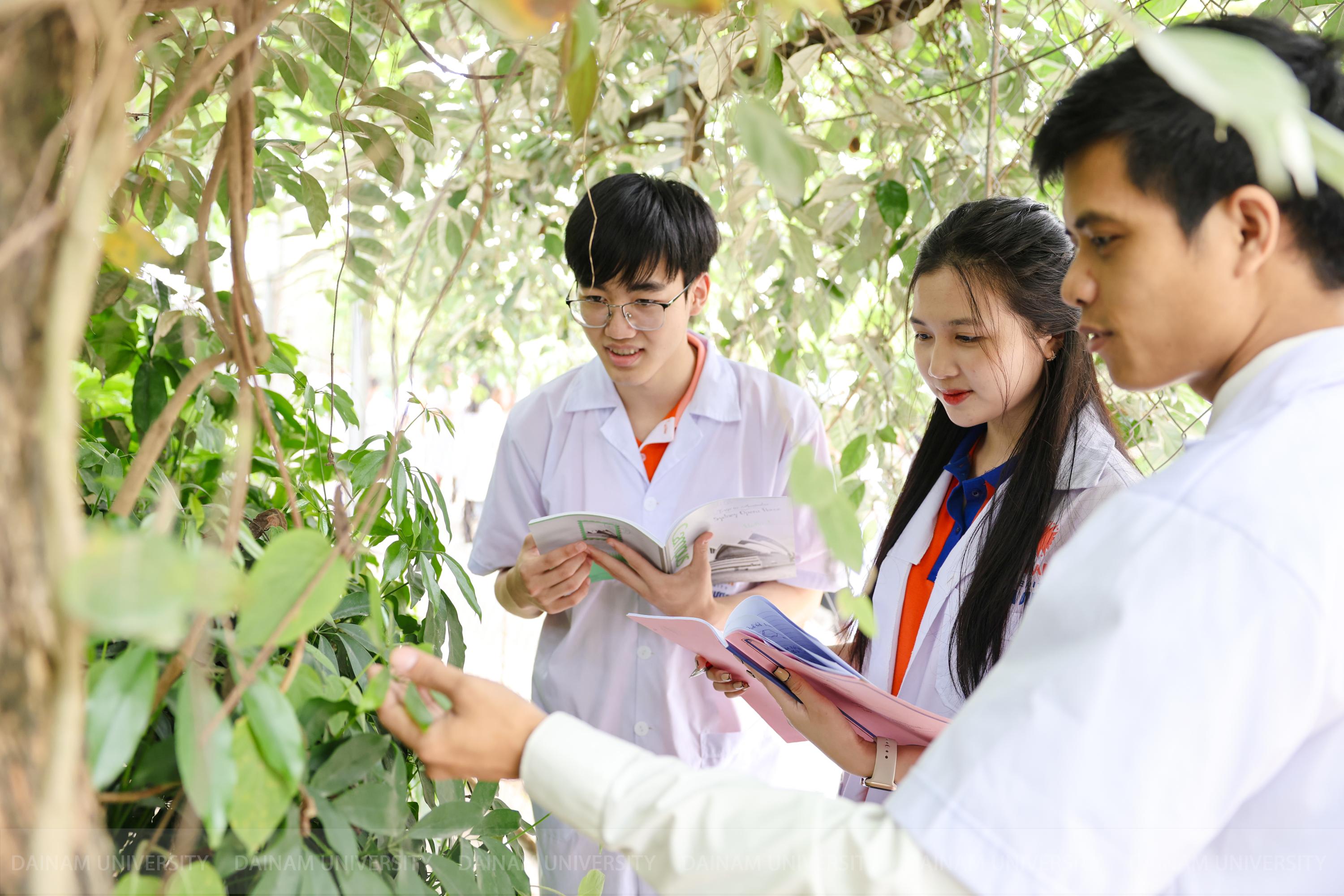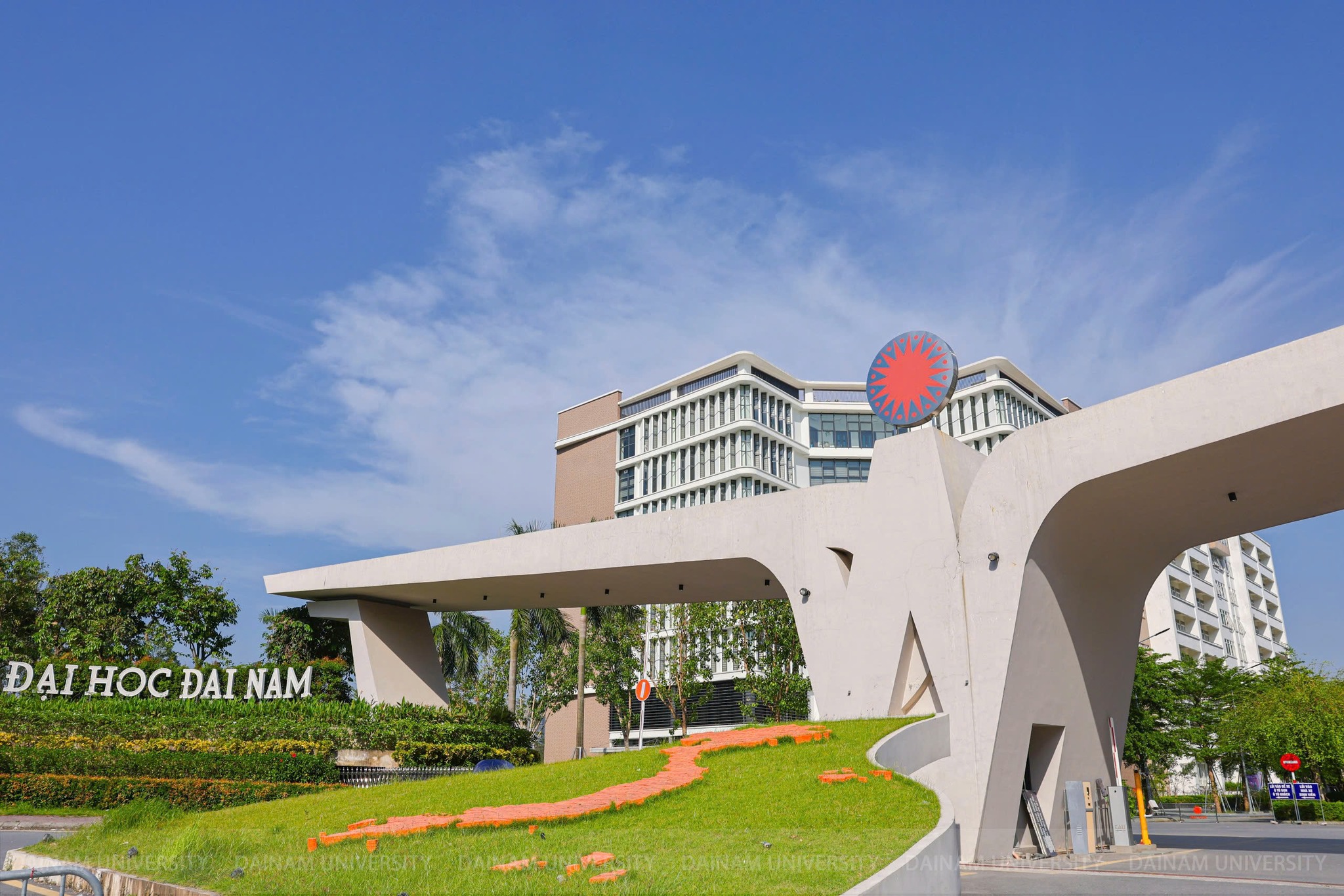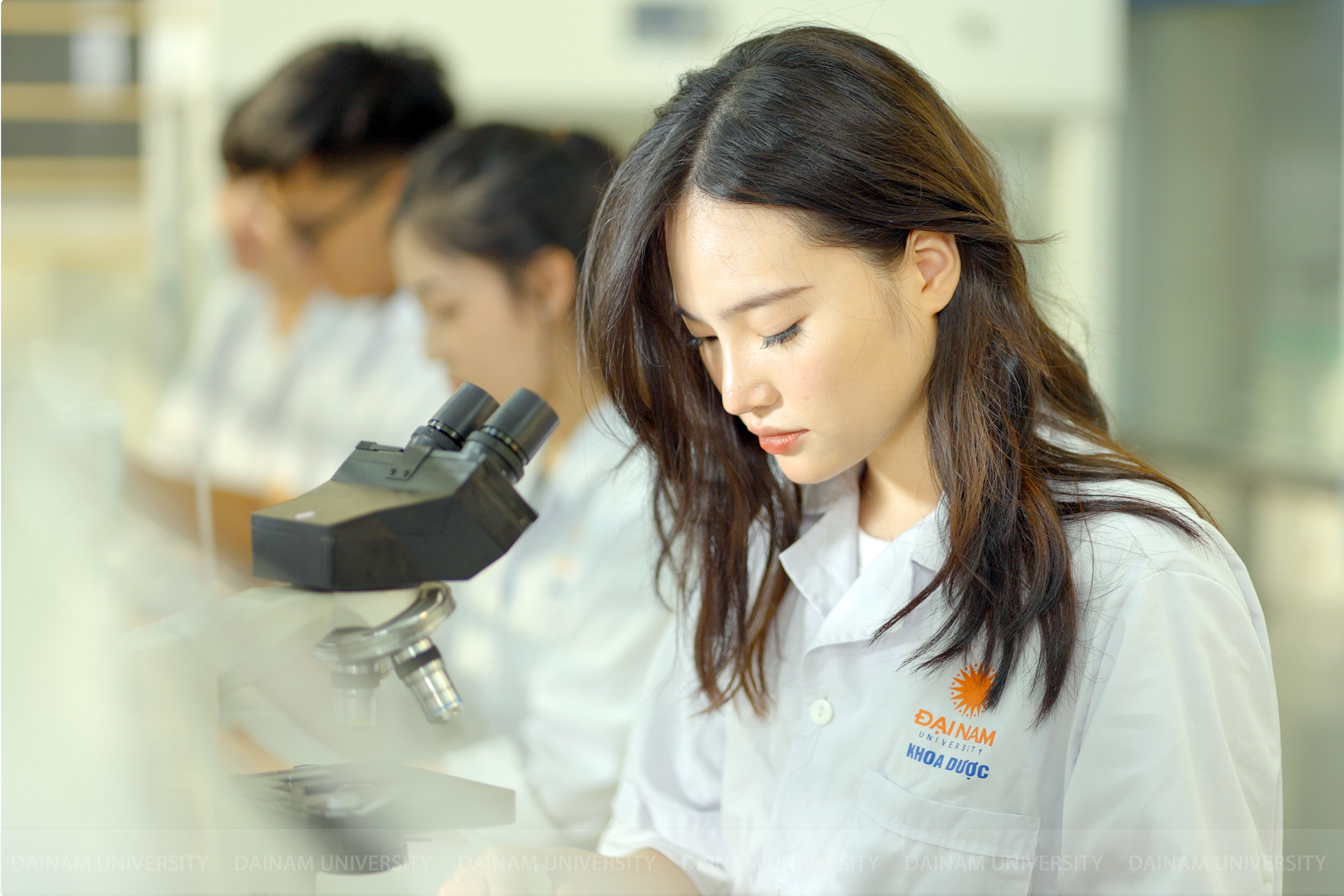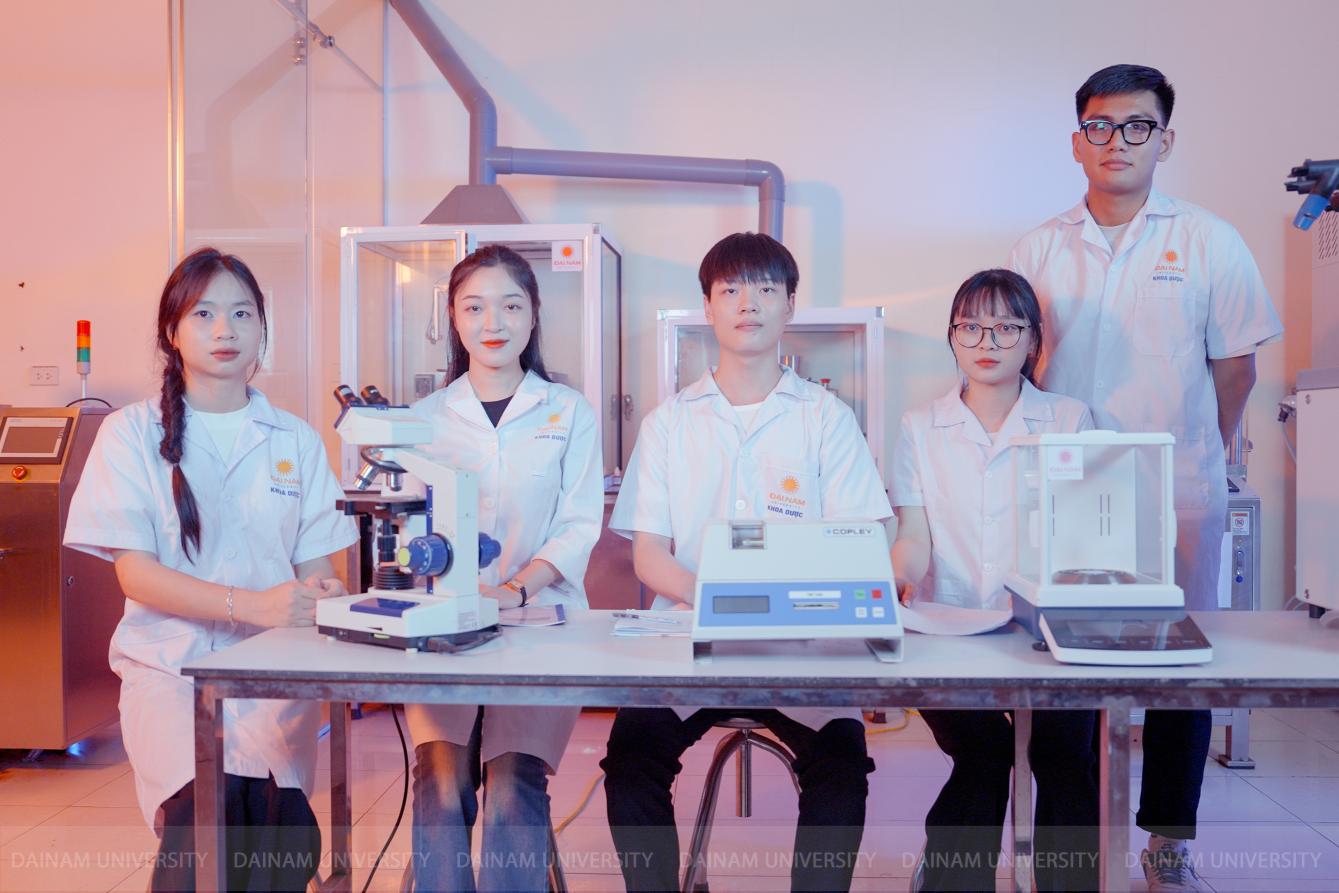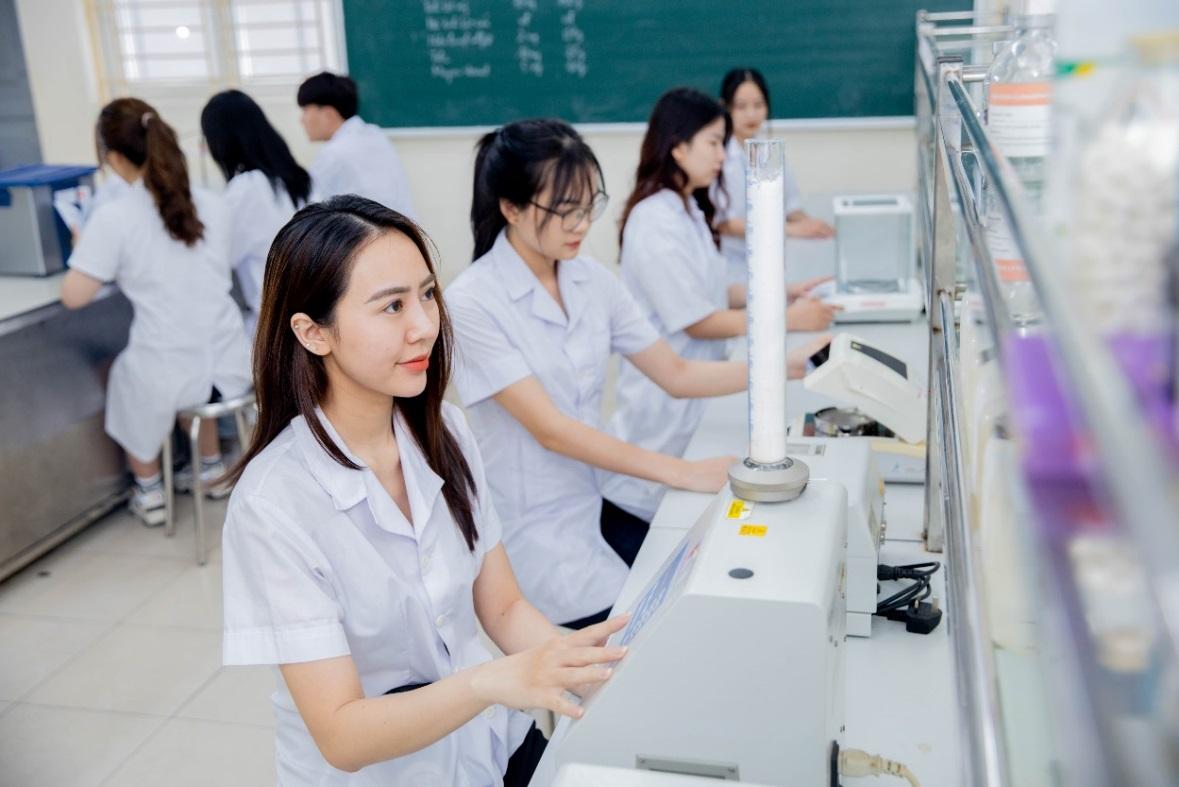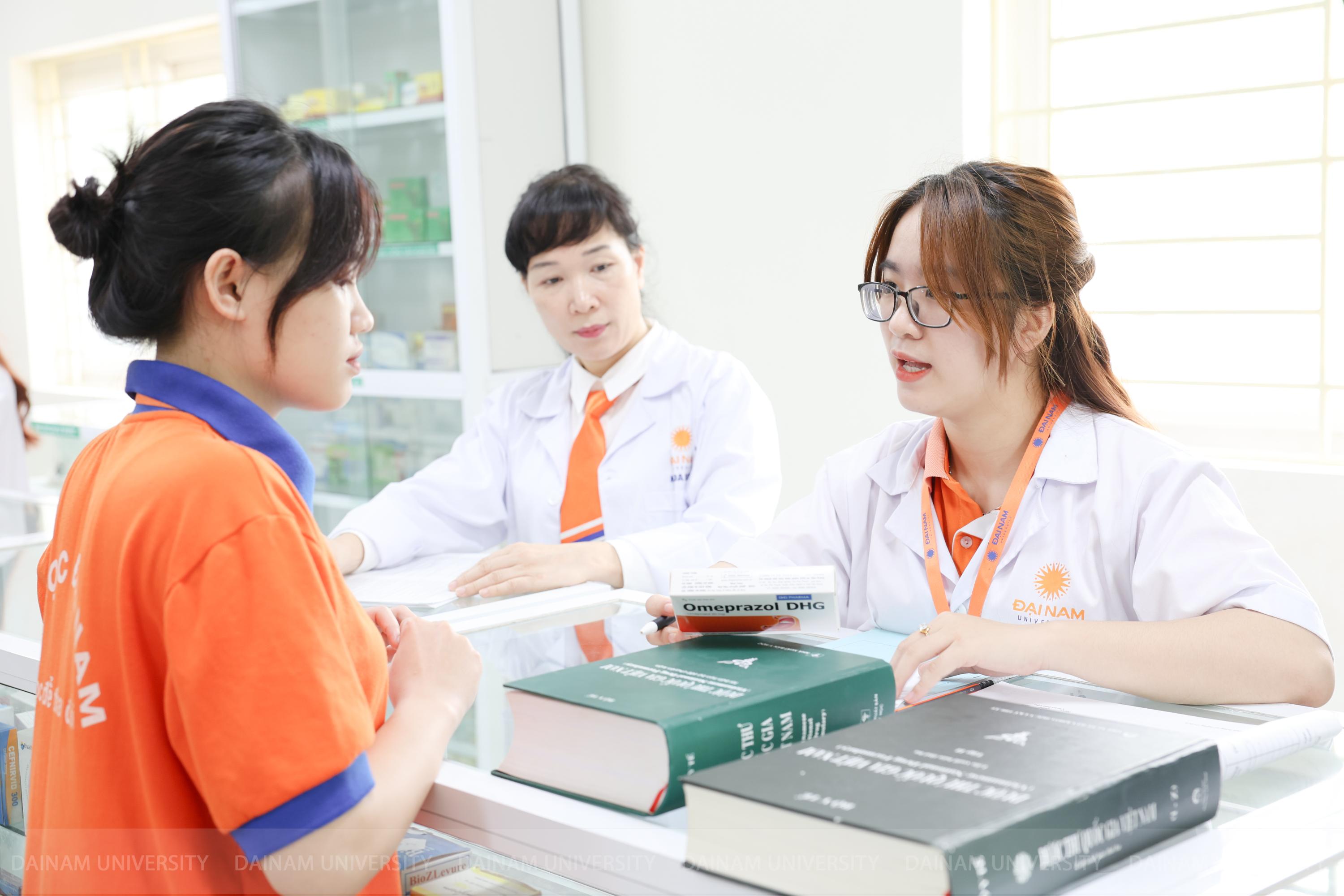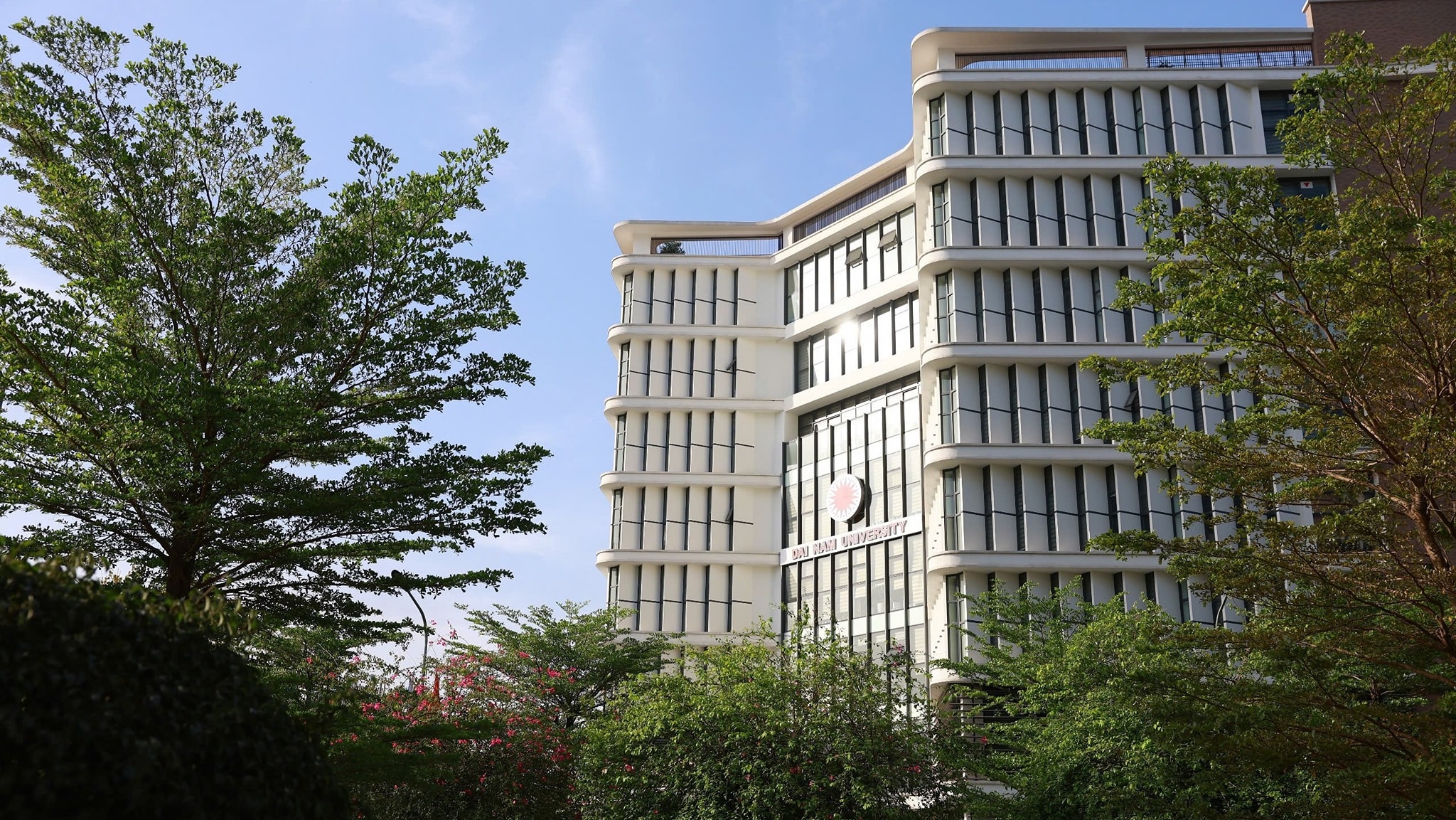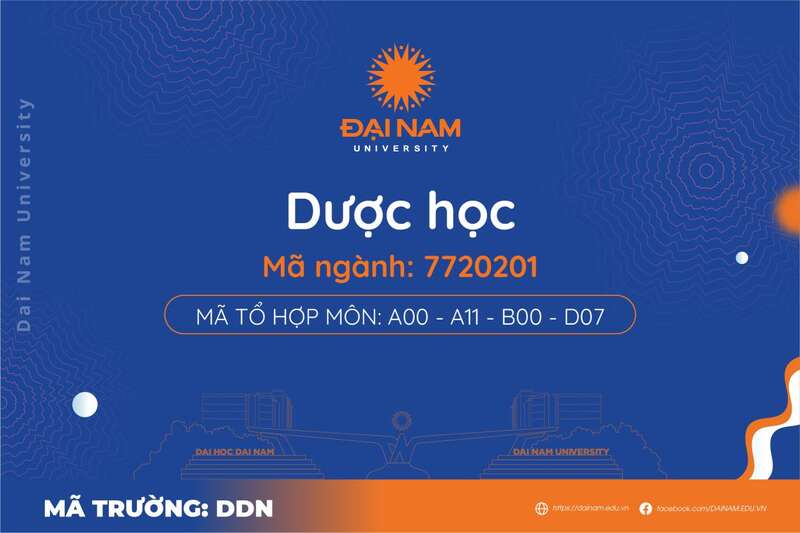Pharmacy is a field that trains pharmacists with strong ethics, fundamental scientific knowledge, and expertise in pharmaceutical and medical sciences. Graduates acquire the knowledge and skills to provide professional advice on the safe, effective, and rational use of medications; manufacture, manage, and supply high-quality pharmaceuticals; conduct scientific research; and pursue continuous learning to enhance their professional expertise, contributing to the care, protection, and improvement of human health.
Overview of the study field
Pharmacy is not only about learning medications but also about exploring drug formulation, testing, management, and safe, effective usage consultation. Students are equipped with knowledge ranging from basic sciences to advanced subjects such as pharmacology, clinical pharmacy, pharmaceutical technology, pharmaceutical business, and traditional medicine. The program emphasizes learning through practice in modern laboratories, GPP-standard practice pharmacies, hospitals, and pharmaceutical companies—opening up vast career opportunities in the healthcare sector.
Major code
7720201
Training duration
4.5 years – 14 semesters
Degree after graduation
Bachelor's Degree in Pharmacy
Admission combination
- Math, Physics, Chemistry (A00)
- Math, Chemistry, Biology (B00)
- Math, Biology, English (B08)
- Math, Literature, Physics (C02)
- Toán, Hóa, Anh (D07)
- Toán, Hóa, GDKT&PL (X09)
- Toán, Hóa, Tin (X10)
Degree after graduation
Bachelor's Degree in Pharmacy
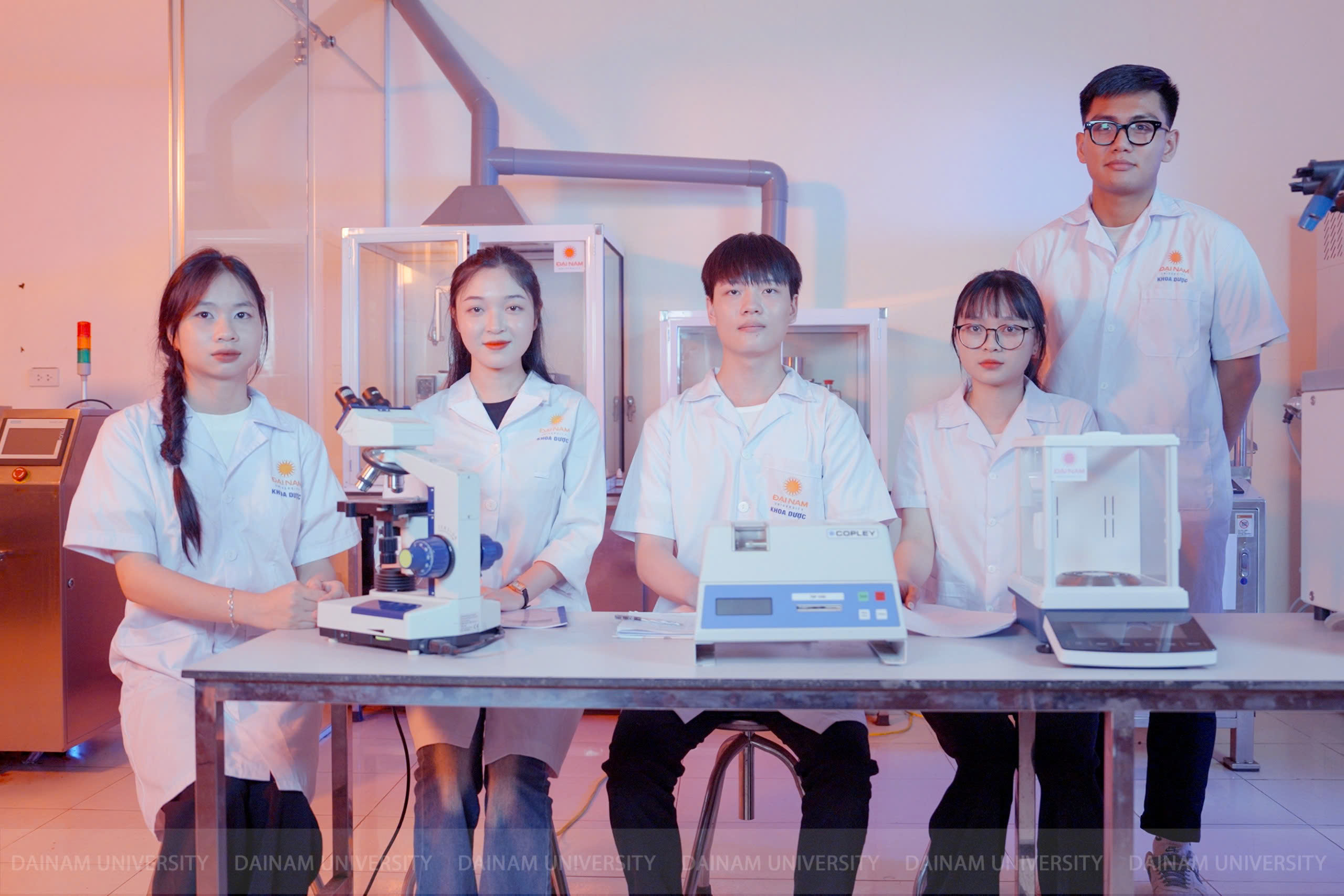
Highlights of the training program
A modern training program closely tied to practical applications. Students learn and conduct scientific research in an advanced environment with state-of-the-art facilities and standardized laboratories, guided dedicatedly by a team of experienced faculty. The university also collaborates with leading hospitals and pharmaceutical companies, providing internship opportunities, professional skill development, and a strong foundation for future careers.
Advanced training program
The Pharmacy training program is systematically designed to foster comprehensive development, from foundational knowledge to advanced professional skills.
Foundational Knowledge Block: Builds logical thinking, soft skills, foreign language proficiency, and physical fitness through subjects like Soft Skills, National Defense and Security, English, Political Studies, and Physical Education.
Industry Foundation Knowledge Block: Equips students with scientific fundamentals for the Pharmacy field, including Pharmaceutical Physics, Chemistry (General, Inorganic, Physical, Organic, Analytical, Biochemical), and Medicinal Botany.
Specialized Knowledge Block: Provides in-depth expertise for practicing pharmacists, covering Pharmaceutical Chemistry, Drug Formulation, Drug Testing, Herbal Medicine, Pharmacology, Clinical Pharmacy, and Pharmaceutical Management and Business.
Practical Internship: Students gain hands-on experience starting from their first year at pharmacies, pharmaceutical companies, hospitals (clinical pharmacy), and drug-cosmetic testing centers, ensuring knowledge is closely aligned with real-world practice.
Reputable faculty
The Faculty of Pharmacy’s teaching staff consists of over 150 experienced experts, including Professors, Associate Professors, PhDs, Master’s degree holders, and Level 1 Specialist Pharmacists dedicated to their profession.
Notably, many faculty members have held senior positions, such as Deputy or Head of Departments at prestigious institutions like the University of Pharmacy, Military Medical Academy, and Hanoi Medical University, ensuring exceptional training quality.
Modern facilities
The Faculty of Pharmacy boasts modern lecture halls equipped with projectors, sound systems, and air conditioning, ensuring a comfortable learning environment.
A separate pharmaceutical practice area, compliant with Ministry of Health standards, provides optimal conditions for pharmacist training.
Students gain hands-on experience at a GPP-standard model pharmacy, honing skills in drug dispensing, medication counseling, and prescription analysis.
A medicinal plant garden, developed based on the Ministry of Health’s Essential Drugs List, allows students to directly engage with medicinal materials for research and practical applications.
Graduate competencies
Graduate competencies
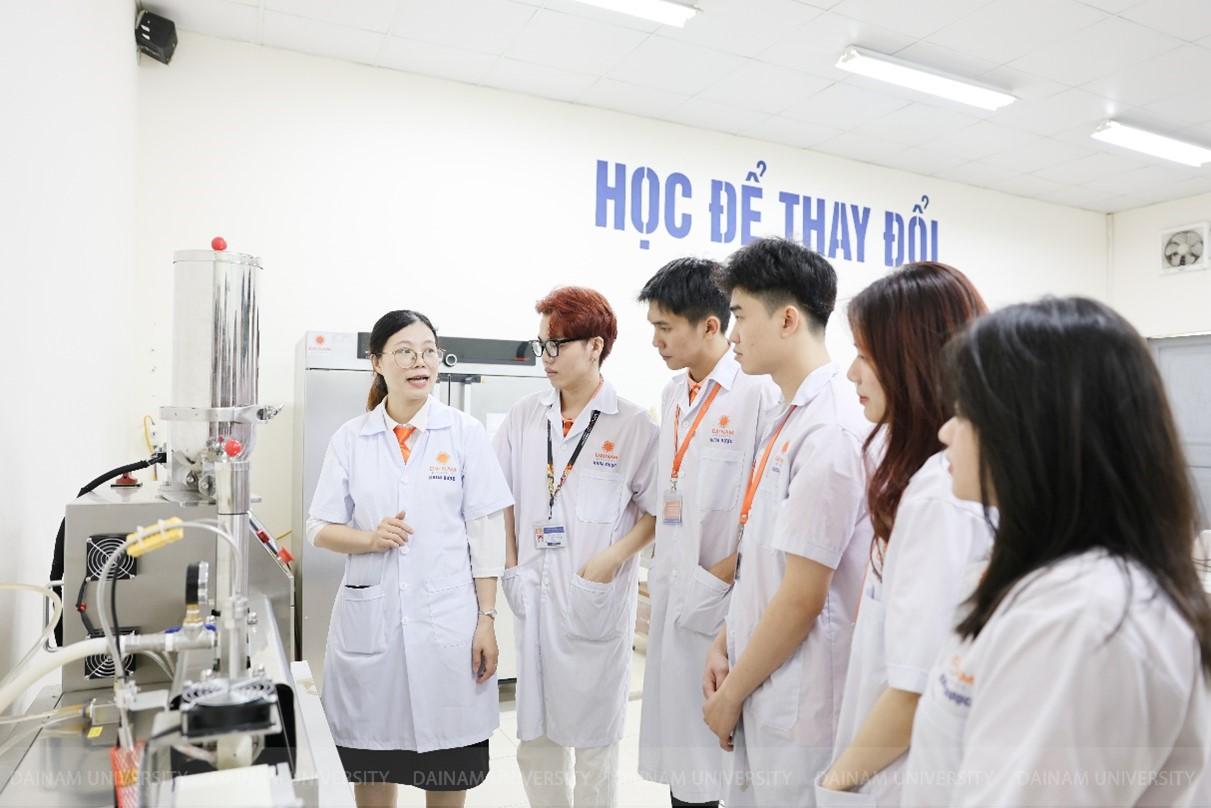
Curriculum structure
Learning and teaching methods
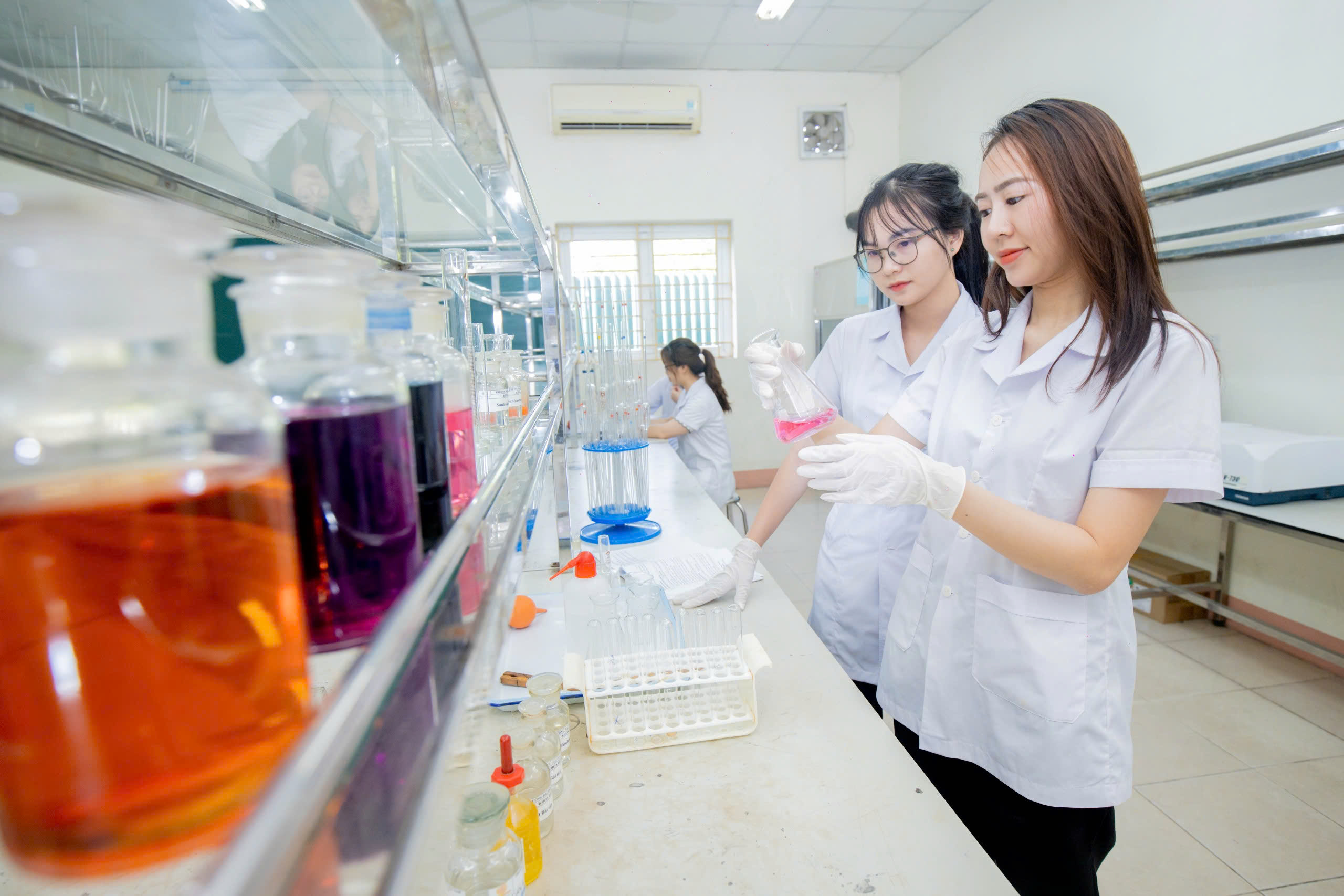
Job opportunities after graduation
-
High demand for human resources
The demand for pharmaceutical professionals in Vietnam is growing rapidly, with a projected need for approximately 25,000 university-trained pharmacists by 2030. This includes roles such as clinical pharmacists in hospitals and pharmacies, research and development pharmacists, quality control pharmacists, medical representatives, and professionals in pharmaceutical business and marketing
-
What can graduates do?
University-trained pharmacists can pursue various roles in healthcare and related fields after graduation, including:
1. Clinical Pharmacist: Work in hospitals or medical centers, directly advising doctors and patients on medication use.
2. Community Pharmacist: Operate in retail pharmacies or pharmacy chains, providing medication counseling and dispensing drugs to the public.
3. Drug Manufacturing and Testing: Join pharmaceutical companies to handle drug formulation, research and development of new medications, or quality control.
4. Pharmaceutical Business and Distribution: Work for companies distributing pharmaceuticals, functional foods, cosmetics, or medical devices.
5. Teaching and Research: Serve as lecturers at universities or colleges, or engage in scientific research in the pharmaceutical field.
6. Pharmacy Management: Work in government agencies such as Health Departments or the Drug Administration of Vietnam, overseeing drug licensing and quality control.
-
Where can graduates work?
- Hospitals, Clinics: Faculty of Pharmacy, Clinical Pharmacy.
- Pharmacies, Pharmacy Chains: Pharmacity, Long Chau, An Khang...
- Pharmaceutical Companies: Sanofi, DHG Pharma, Traphaco, Pymepharco...
- Research Institutes, Testing Centers: National Institute for Drug Quality Control, local drug testing centers.
- State Regulatory Agencies: Ministry of Health, Department of Health, Drug Administration of Vietnam.
- Universities, Colleges: Involved in teaching and scientific research.
-
How much is the salary?
Salaries depend on job position, experience, and workplace:
-
Fresh graduates: 8 - 12 million VND/month (pharmacies, pharmaceutical companies).
-
Clinical pharmacists at hospitals: 10 - 15 million VND/month (excluding allowances).
-
Pharmacists in quality control, drug production: 12 - 18 million VND/month.
-
Pharmacy managers, head of pharmacy department: 20 - 30 million VND/month.
-
Research specialists, lecturers: 15 - 25 million VND/month (higher if holding a Master's or PhD degree).
-
Business development, pharmacy chain management: 20 - 40 million VND/month (depending on scale and sales).
-
High promotion opportunities, income can reach 50 - 100 million VND/month for senior management positions or owning a pharmacy, pharmaceutical distribution company.
-
Admission methods and registration guidelines for 2026
Register for admission consultation 2026
In 2026, Dai Nam University will admit students to 38 majors and academic programs across the following disciplinary clusters: Health Sciences; Engineering and Technology; Economics and Business; Social Sciences and Humanities; and Fine Arts and Design.
Register now to secure
scholarships and tuition support worth up to 55 billion VND
scholarships and tuition support worth up to 55 billion VND

Register now to secure
scholarships and tuition support worth up to 55 billion VND
scholarships and tuition support worth up to 55 billion VND

